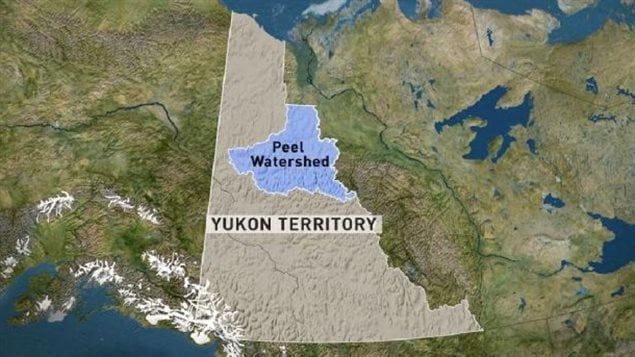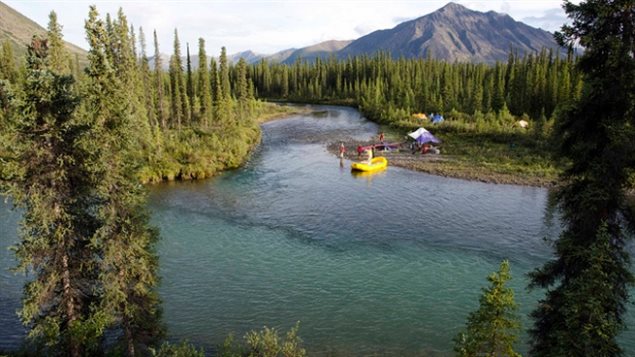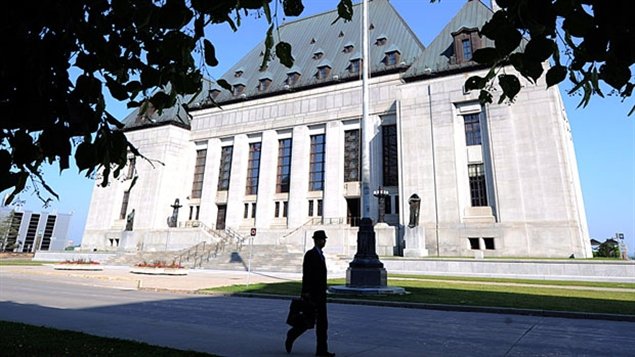The Supreme Court of Canada has ruled in favour of Yukon First Nations in their fight to protect a large area of almost pristine sub-Arctic wilderness from resource development.
The unanimous ruling released Friday ends a five-year legal battle between the Yukon government and a group of First Nations and environmental groups over government’s plans to short-circuit collaborative regional land use planning process over development plans of the Peel watershed region.
The Peel watershed is a roughly 68,000-square-kilometre swath of nearly untouched wilderness that represents about 16 per cent of Yukon.
The unanimous ruling released Friday ends a five-year legal battle between the Yukon government and a group of First Nations and environmental groups and returns the parties to an earlier stage in the planning process.
The case revolves around land claims agreements between the governments of Yukon, Canada, and the First Nations.

These Final Agreements recognize the traditional territories of the First Nations in the Yukon portion of the Peel Watershed and their right to participate in the management of public resources in that area.
In 2004, the Peel Watershed Planning Commission was established to develop a regional land use plan for the Peel Watershed.
In 2009, after years of research and consultation, the commission initiated the land use approval process by submitting its Recommended Peel Watershed Regional Land Use Plan to Yukon and the affected First Nations. It would have protected about 80 per cent of the region from development.
However, near the end of the approval process, and after the commission had released a Final Recommended Plan, the government of Yukon proposed and adopted a final plan that made substantial changes to increase access to and development of the region, setting aside for protection just 30 per cent of the Peel Watershed.

The Yukon First Nations took the territorial government to court which ruled in their favour, however the territorial government appealed that decision, and won a partial victory in the Yukon Court of Appeal, until the First Nations and environmental groups in turn appealed to the country’s highest court.
In the ruling Friday, written by Justice Andromache Karakatsanis, the court upheld the original ruling by a trial judge to quash the territorial government’s final land-use plan, ordering the planning process to resume at an earlier stage.
The Supreme Court ruled that the government of Yukon did not have the authority to make the changes that it made to the Final Recommended Plan.
“Yukon’s changes to the Final Recommended Plan did not respect the land use planning process in the Final Agreements and its conduct was not becoming of the honour of the Crown,” the Supreme Court ruling reads.
Yukon must bear the consequences of its failure to diligently advance its interests and exercise its right to properly propose modifications related to access and development to the Recommended Plan, the court said.
The territorial government cannot use the Supreme Court proceedings to obtain another opportunity to exercise a right it chose not to exercise at the appropriate time, the court said.
With files from CBC News







For reasons beyond our control, and for an undetermined period of time, our comment section is now closed. However, our social networks remain open to your contributions.